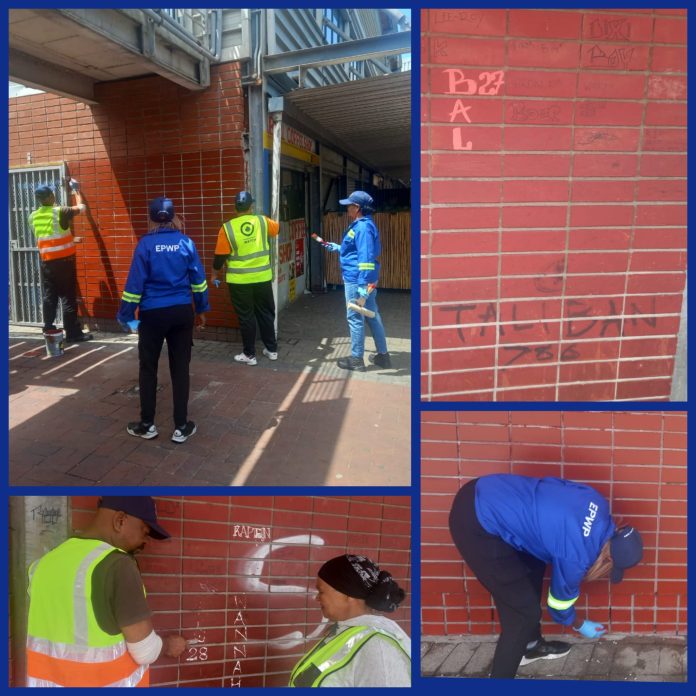The City of Cape Town is clarifying its stance on public art and murals, after recently coming under fire for concealing art installations in public or private property.
Some residents across the city has taken to install art installations in a show of their support for Palestine, in light of the ongoing wars in the Middle East. Some pro-Palestine residents have done so by painting murals of the country’s flag on the walls of their home.
Days later, City officials have been seen painting over these murals to cover them.
@adjiez04this is not” allowed” as they say. Ordered to remove the Palestinian flag.♬ original sound – 🇦 🇩 🇯 🇮 🇪 🇿
Cape communities have since responded with outrage, claiming that the City does not take the same action when dealing with gang-related insignia or logos.
In response to the public’s upset, Mayoral Committee Member for Safety and Security, JP Smith, says the City is being unfairly criticised and its regulations are being misrepresented.
“Cape Town’s Graffiti by-law was introduced in 2009. Any person who wishes to erect a mural or any form of graffiti must apply for permission from the City’s Department of Arts and Culture, as outlined in the Graffiti by-law. It is important to note that, even where the installation is on private property, an application is still required.”
Smith says that between January and September 2023, the City’s “Graffiti Unit” removed over 24 000 square metres of graffiti. This unit manages complaints relating to illegal graffiti, tagging and so forth – and focuses on City-owned buildings.
Smith further notes that City by-laws do allow for freedom of expression through public art installations, where the permit process is duly followed.
“The City of Cape Town’s regulations enable freedom of expression where people wish to paint a mural to show their support for a cause. The permitting process further ensures the sustainable management of public buildings and places for all.”


